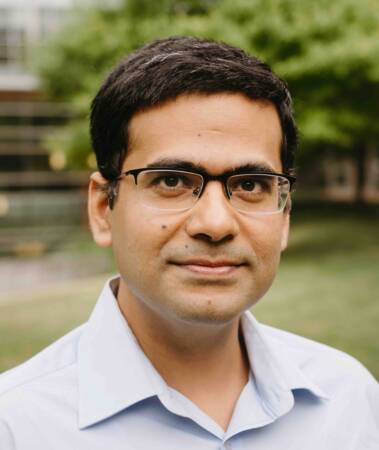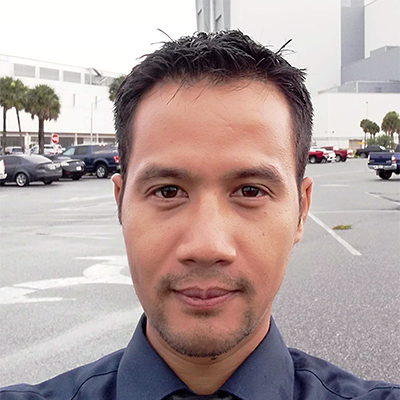Seminar
Neural Field Representations of Mobile Computational Photography
Abstract: Burst imaging pipelines allow cellphones to compensate for less-than-ideal optical and sensor hardware by computationally merging multiple lower-quality images into a single high-quality output. The main challenge for these pipelines is compensating for pixel motion, estimating how to align and merge measurements across time while the user's natural hand tremor involuntarily shakes the camera. In [...]
Robot Learning by Understanding Egocentric Videos
Abstract: True gains of machine learning in AI sub-fields such as computer vision and natural language processing have come about from the use of large-scale diverse datasets for learning. In this talk, I will discuss how we can leverage large-scale diverse data in the form of egocentric videos (first-person videos of humans conducting different tasks) [...]
Special Seminar
Speaker: Abhisesh Silwal Title: Robotics and AI for Sustainable Agriculture Abstract: Production agriculture plays a critical role in our lives, providing food security and enabling sustainability. Despite its immense importance, it currently faces many challenges including shortage of farmworkers, increasing production costs, excess use of herbicides just to name a few. Robotics and artificial intelligence-based [...]
Passive Ultra-Wideband Single-Photon Imaging
Abstract: High-speed light sources, fast cameras, and depth sensors have made it possible to image dynamic phenomena occurring in ever smaller time intervals with the help of actively-controlled light sources and synchronization. Unfortunately, while these techniques do capture ultrafast events, they cannot simultaneously capture slower ones too. I will discuss our recent work on passive ultra-wideband [...]
Simulation-Driven Soft Robotics
Abstract: Soft-bodied robots present a compelling solution for navigating tight spaces and interacting with unknown obstacles, with potential applications in inspection, medicine, and AR/VR. Yet, even after a decade, soft robots remain largely in the prototype phase without scaling to the tasks where they show the most promise. These systems are difficult to design and [...]
From Understanding to Interacting with the 3D World
Abstract: Understanding the 3D structure of real-world environments is a fundamental challenge in machine perception, critical for applications spanning robotic navigation, content creation, and mixed reality scenarios. In recent years, machine learning has undergone rapid advancements; however, in the 3D domain, such data-driven learning is often very challenging under limited 3D/4D data availability. In this talk, [...]
Learned Imaging Systems
Abstract: Computational imaging systems are based on the joint design of optics and associated image reconstruction algorithms. Of particular interest in recent years has been the development of end-to-end learned “Deep Optics” systems that use differentiable optical simulation in combination with backpropagation to simultaneously learn optical design and deep network post-processing for applications such as hyperspectral [...]
ARPA-H and America’s Health: Pursuing High-Risk/High-Reward Research to Improve Health Outcomes for All
Dr. Andy Kilianski will provide an overview of ARPA-H, a new U.S. government funding agency pursuing R&D for health challenges. He will review the unique niche occupied by ARPA-H within the Department of Health and Human Services and how ARPA-H is already partnering with academia and industry to transform health outcomes across the country. Discussion [...]
Robots Crossing Boundaries
Abstract: Over the last 50 years, autonomous robots have made the leap from being novel research contributions in university labs to becoming the fundamental technology upon which companies are built. While they traditionally have belonged to the engineering and computer science disciplines, robots have now crossed into other areas of study and research - making impacts in oceanography, geology, archaeology, biomechanics and biology. [...]








